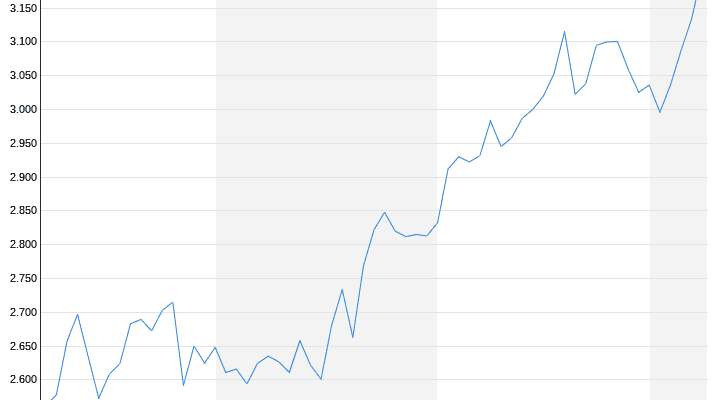Virus, energy costs, sanctions
Aluminum price jumps to 2008 level
2/8/2022, 8:06 p.m
Several factors are currently driving up the price per ton of aluminum. The tiresome topic of Corona and the high energy costs are just two variables that are throttling production and thus reducing supply on the world market.
The price of a tonne of aluminum has risen to its highest level since 2008. In addition to general supply bottlenecks, the reason for this is the corona lockdown in the Chinese city of Baise, an important production site for the metal. In the afternoon, the price per ton on the London Metal Exchange was over 3,200 dollars (a good 2,800 euros).
The strong price increase is mainly due to the tense production situation worldwide, explained the analyst Daniel Briesemann from Commerzbank. In Europe, several hundred thousand tons were not produced due to high energy costs. In China, on the other hand, a quantity of 1.7 million tons is produced annually in Baise alone – but the 3.5 million city in southern China has been under quarantine since the weekend. This will further exacerbate the delivery difficulties.
Last but not least, the Ukraine-Russia conflict is also weighing on the prices for the metals, as experts explained. Alongside China, Russia is one of the largest aluminum producers in the world. The threat of sanctions will have a negative impact on prices.
USA and Japan put dispute on hold for the time being
Meanwhile, the United States and Japan have settled their dispute over the special tariffs on steel and aluminum imports introduced by then-US President Donald Trump. Japan will be allowed to import certain amounts of steel and aluminum duty-free into the United States from April, according to a statement on the agreement distributed in Washington on Monday.
The duty-free trade volume should roughly correspond to that of 2018 and 2019, when there were no punitive tariffs. The agreement thus follows the model of an agreement between the government of US President Joe Biden and the European Union, which was announced at the end of last year.
Republican Trump justified the 25 percent tariffs, which also hit close US allies such as Japan and the Europeans, with “national security interests”. When he took office a year ago, the Democrat Biden promised to mend the relationship he had damaged with US allies.
